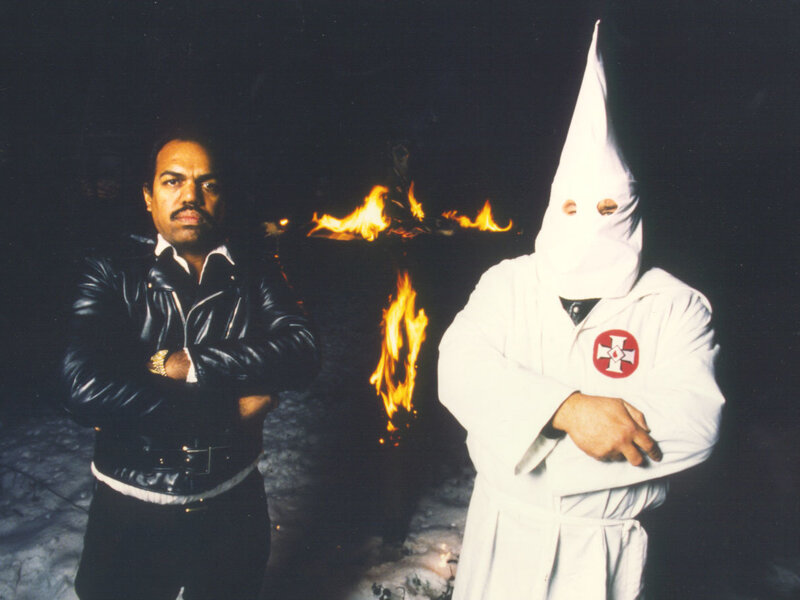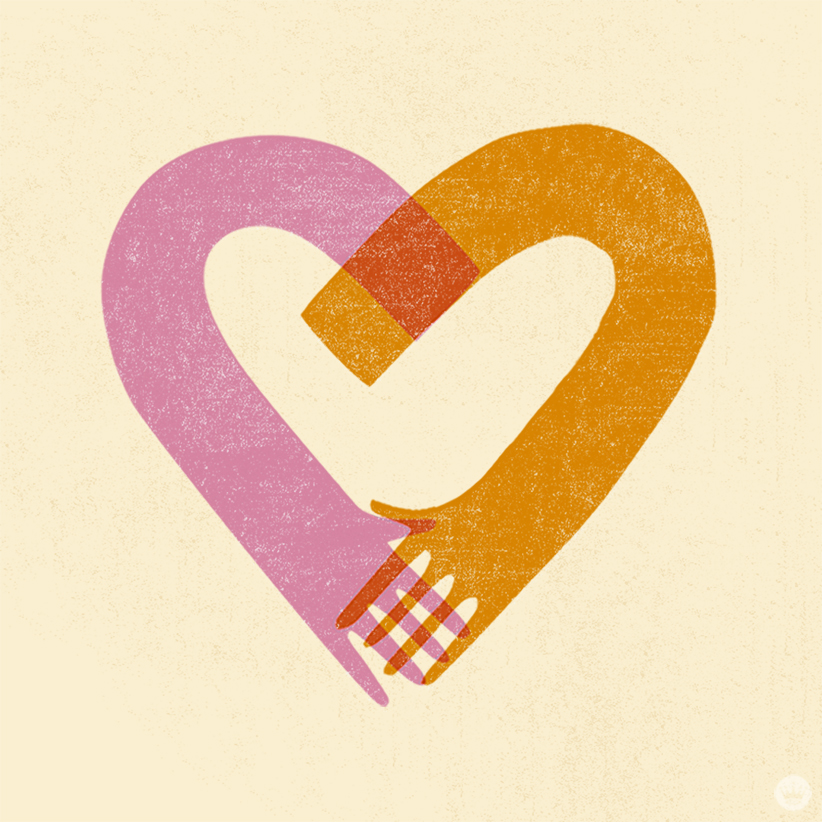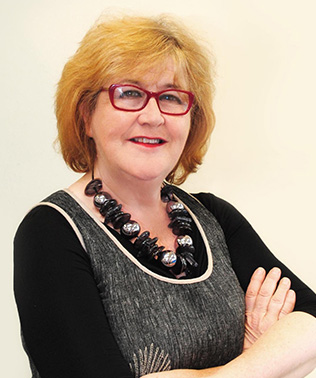As storyteller Elizabeth Ellis says, "You can't build bridges out of soap boxes." Here are examples or methods of bringing
diverse groups together.
Stories / Newspaper Articles/ Videos / Songs
A SIMPLE STORY ABOUT HISTORY…AND COURAGE
by Storyteller Dovie Thomason www.DovieThomason.com
For more videos like this visit: RaceBridgesStudio.com
November TEDWomen2017 - Valerie Kaur ended this talk by saying: “There are three kinds of love.
Loving just ourselves
feels good, but it's narcissism.
Loving only our
opponents is self-loathing.
Loving only others is
ineffective. This is where a lot of our movements live right now. We
need to practice all three forms of love. And so, how do we practice
it? Ready?
Number one ... in order to love others, see no
stranger. We can train our eyes to look upon strangers on the
street, on the subway, on the screen, and say in our minds, "Brother, sister,aunt, uncle." And
when we say this, what we are saying is, "You are a part of me I do
not yet know. I choose to wonder about you. I will listen for your
stories and pick up a sword when you are in harm's way."
And so, number two: in order to love our opponents, tend
the wound. Can you see the wound in the ones who hurt you? Can
you wonder even about them? And if this question sends panic through your
body, then your most revolutionary act is to wonder, listen and
respond to your own needs.
Number three: in order to love
ourselves, breathe and push. When we are pushing into the fires
in our bodies or the fires in the world, we need to be breathing
together in order to be pushing together. How are you breathing each
day? Who are you breathing with? Because ... when executive
orders and news of violence hits our bodies hard, sometimes less than a
minute apart, it feels like dying. In those moments, my son
places his hand on my cheek and says, "Dance time,
mommy?" And we dance. In the darkness, we breathe and we
dance. Our family becomes a pocket of revolutionary love. Our joy is
an act of moral resistance. How are you protecting your joy each
day? Because in joy we see even darkness with new eyes.
And so the mother in
me asks, what if this darkness is not the darkness of the tomb, but
the darkness of the womb? What if our future is not dead, but still
waiting to be born? What if this is our great transition? Remember
the wisdom of the midwife. "Breathe," she says. And then
-- "push." Because if we don't push, we will die. If
we don't breathe, we will die.
Revolutionary love
requires us to breathe and push through the fire with a warrior's heart
and a saint's eyes so that one day ... one day you will see my son as
your own and protect him when I am not there. You will tend to the
wound in the ones who want to hurt him. You will teach him how to love
himself because you love yourself. You will whisper in his
ear, as I whisper in yours, "You are brave." You are brave.”
December 2017 TEDxWilmingtonSalon, Wilmington, DE - When Israeli-born Noa Baum moved to the U.S. and unexpectedly formed a friendship with a Palestinian woman, she realized the importance of listening to the story of the “other” – even if that other is the enemy. She discovered that storytelling transforms perceptions, and from that epiphany Noa shares how she uses storytelling to connect across conflict in our communities and work places.
Noa ends her talk by saying, “I invite you to choose to be ambassadors of peace.”
January 23, 2018 Toronto, CA - Baby Naomi is teaching 9 and 10-year-olds empathy. She's part of an international program called Roots of Empathy , created in 1996. To date, To date, Roots of Empathy programs have reached over 800,000 children in Canada, the United States, New Zealand, Northern Ireland, the Republic of Ireland, Scotland, England, Wales, Switzerland, Germany and Costa Rica. The program has been called “Canada’s olive branch to the world.”
October 17, 2017 https://www.facebook.com/Starbucks/videos/10155796290203057/ A man admitted he was a racist on national TV. Then his life took an unexpected turn.
August 18, 2017 - San Antonio, TX Several years ago, the Episcopalian Church of Reconciliation , whose congregation is primarily white and wealthy, opened up their property to their neighborhood, which is mostly Hispanic and black. The church built a basketball court and a community garden. That basketball court saved Frederick Jones’ life.
Now, the church has decided to build a community center once they find out from their neighbors what THEY would want in that community center.
June 26, 2016 - Indianapolis, IN At the U.S. Conference of Mayors, Lady Gaga gave a heartfelt and wise talk advising everyone to use relentless kindness to build bridges. And the Dalai Lama was sitting next to her :-)
Compassion Games
September 9-24, 2017 - The World This video demonstrates how the Compassion Games can change cultures - even in prison and in a high school plagued by gang violence. This is "climate change" for good! There are hundreds of games worldwide this September.
How One Man Convinced 200 Ku Klux Klan Members To Give Up Their Robes
August 20, 2017 Daryl Davis is a blues musician, but he also has what some might call an interesting hobby. For the past 30 years, Davis, a black man, has spent time befriending members of the Ku Klux Klan.He says once the friendship blossoms, the Klansmen realize that their hate may be misguided. Since Davis started talking with these members, he says 200 Klansmen have given up their robes.
Empathy Matters: Making Art in an Unkind World
August 16, 2017 A writer at Hallmark wrote: I caught myself thinking, “There’s nothing I can do.”
Except that’s not true. I can do something about it, particularly as a creative.
As Creatives, we are translators of our human experiences.We make things that have meaning.We help make the world make sense.We help bring poetic order to the chaos.Through our creativity we can connect one human being to another.
And, I believe, we can connect human beings across our differences.
Compassionate Communication
Rosenberg’s technique for communicating compassionately relies on four core steps:
- Observing a situation without judgment;
- Discerning which emotions are being triggered in the situation;
- Connecting those emotions to the underlying needs that aren’t being addressed; and
- Making a reasonable request of the other person.
Center for Nonviolent Communication
National Storytelling Network's Circle of Excellence and Lifetime Achievement award winner Elizabeth Ellis writes about "Girders and Rivets:
Some Thoughts on Bridge Building."
http://www.katedudding.com/where-am-i-from.shtml Where Am I From – a personal story about what
Kate Dudding learned from her DNA analysis.
http://www.katedudding.com/tent-of-abraham.shtml The Tent of Abraham – a meeting of an
interfaith story circle which brought together strangers – Jews, Christians and
Muslims – all people who consider Abraham a patriarch. They listened
respectfully to each other’s stories about Abraham, accepting the commonalities
and the differences.
.@AEI president @ArthurBrooks says political polarization is rooted in contempt, and we should look to the Dalai Lama for the solution pic.twitter.com/YbTlT2CwKm— HarvardKennedySchool (@Kennedy_School) April 26, 2017
American Enterprise Institute President Arthur Brooks shared a lesson from the Dalai Lama on overcoming political polarization.
Heineken presents ‘Worlds Apart’ An Experiment. Can two strangers with opposing views prove that there’s more that unites than divides us?
It’s harder than ever to have a conversation with someone we disagree with. So, this past month, StoryCorps teamed up with another public radio program, called Indivisible, for an experiment. They wanted to find out if listeners would be willing to record StoryCorps conversations with someone they considered their political opposite.
Can we talk across the lines we draw out between “us” and “them”? That’s what StoryCorps is trying to figure out. In this episode, listen to three conversations from that experiment. It seems that meaningful conversations between people with different viewpoints generally start by respecting each other. Also find out how you can join in by writing to listen@storycorps.org.
Storyteller Liz Weir from Northern Ireland writes about using stories as part of a peaceful resolution to “The Troubles”. "If people take the time to listen to another’s story they are paying them respect. Even if the other person holds views which are diametrically opposed to our own, the very act of listening to their stories is important. It acknowledges them as members of a shared society." Read more here.
A Charlotte church put up a sign about its Muslim neighbors. Then the neighbors answered. Tonight they'll be sharing a meal. 4-13-17
We live in a time where we quickly put people in boxes. Maybe we have more in common than what we think.
StoryCorps is asking for your help to ensure that listening to one another — truly listening — continues to be woven into the fabric of American society. Join the Listening Challenge: bit.ly/ListeningChallenge
Sally
Kohn, a progressive lesbian talking head, shares what she has learned from
debating people on Fox News. She says that you must be emotional correct, which
is much more important than being politically correct. You must find the
compassion for those who don’t agree with you, that kind of compassion that you would like them
to have for yourself. This isn’t easy.
A
favorite email that she received started: “I’m not a big fan of your political
leanings, but I’m a big fan of you as a person.” That’s a good beginning for a real discussion.
Rev. William Barber, Pastor of Greenleaf Christian Church, Disciples of Christ in Goldsboro, North Carolina, offers some words of hope. “People have always stood up.” He established a “Moral Monday” as a rallying point about moral issues, holding race and class together. Maybe it’s our time to stand up. "We will never give up on the heart of this democracy."
Lancaster, PA has been welcoming refugees for years and intends to continue doing just that 2-1-17
https://youtu.be/kYembGqZF94 Heartsong United Methodist Church near Memphis, TN welcomed their new Muslim neighbors in 2010. Their friendships continue to grow.
http://www.thelocal.dk/20170201/this-danish-video-is-giving-everyone-the-feels Danish video which demonstrates
the many ways people are similar 2-1-17
A group of people from around the world find out the results of their DNA analyses, and find out they have much more in common than they thought.
https://ww2.kqed.org/mindshift/2017/02/08/empathy-is-tough-to-teach-but-is-one-of-the-most-important-life-lessons/ Empathy Is Tough to Teach, But Is One
Of the Most Important Life Lessons Dr.
Brené Brown explains the importance of
empathy and how to cultivate it.
- Perspective taking – being able to take the perspective of another person
- Staying out of judgement
- Recognizing emotion in another person
- Communicating that emotion – feeling with that person
https://www.facebook.com/mb.gibbons.1/videos/1555515131144946/
A full elevator in an apartment building with everyone but a lady preoccupied
with their iPhones inspires the lady to hold an unannounced potluck supper in
the hall. Neighbors meet each other and share what they’ve brought.
#EatTogether from Canada150
 The footage was
taken at the Pro Bowl in Orlando, and the PSA turned the Kiss Cam into an
opportunity to highlight love’s different forms over the traditional Kiss
Cam. According to the Ad Council, the
video featured “real families, couples and friends across different races,
religions, genders, sexualities, abilities and ages.”
The footage was
taken at the Pro Bowl in Orlando, and the PSA turned the Kiss Cam into an
opportunity to highlight love’s different forms over the traditional Kiss
Cam. According to the Ad Council, the
video featured “real families, couples and friends across different races,
religions, genders, sexualities, abilities and ages.”Megan Phelps-Roper, a former member of Westboro Baptist Church, presented a TED Talk Feb. 2017 explaining how she learned to successfully engage across ideological lines:
- Don’t assume bad intent.
- Ask questions.
- Stay calm.
- Make the argument for your position.
A group of Syrian refugees were brought to the Vatican for lunch with the Pope in August 2016. Pope Francis says he wants to give a message of hope to all humanity.
https://www.facebook.com/fusionmedianetwork/videos/1342841949116382/
This video explains how annoying, and sometimes how destructive, stupid
comments can be to minorities when heard over and over and over again.
At Boca Raton High School, no one eats lunch alone anymore. Senior Denis
Estimon, who immigrated from Haiti 12 years ago, and his friends started a group called “We
Dine Together.” The campus has been transformed. “We reach the un-reached,” says teacher adviser Jordan
Hernandez.















Uli Derickson, a naturalized American stewardess on hijacked TWA FLT 847 (1989), managed to connect with the hijackers. She happened to know German and Arabic, and was the only one on the plane who could communicate with them, because the only hijacker who could speak English had been bumped from the flight! Uli talked with them, heard about their families, and told them about her childhood as a hungry refugee, and on the spur of the moment, sang a popular post WWII German song was about having no home. The hijacker, surprised, said, “That’s what I feel like.” Her person-to-person connection calmed the hijackers, and while she was not able to save everyone on the flight, she did use the influence she gained to minimize the violence and to get almost all of the hostages released. www.nytimes.com/2005/12/25/magazine/the-peacemaker-of-flight-847.html
ReplyDeletePulling out a line from the Megan Phelps-Roper talk above: "They approached me as a human being, and that was more transformative than the two full decades of outrage, disdain and violence."
ReplyDeleteNorth Dakota has always been a state that welcomes immigrants, but in some cities the welcome is wearing thin. In this attempt at building bridges, people gathered in a group, and then split into pairs with people they would not otherwise interact with, or perhaps people they disagreed with. They then told each other a story from their lives, and upon reconvening with the larger group, told their partner's story as if it were their own. ihttp://www.bbc.com/news/world-europe-39804471
ReplyDelete